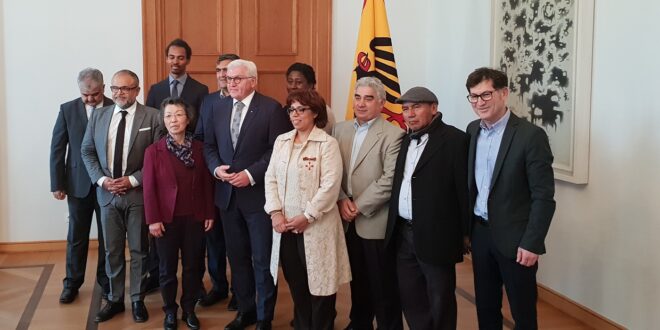As Germany’s coalition talks between the Union parties (CDU/CSU) and SPD progress, migrant advocacy groups are pushing for greater political representation. Thirteen national umbrella organisations have called for at least 25% of cabinet positions to be filled by people with migrant backgrounds, warning that without meaningful inclusion, policies remain “mere symbolism.”
Beyond cabinet representation, the organisations demand a national action plan against racism, antisemitism and discrimination, developed in collaboration with migrant groups, to ensure equal opportunities in education, employment, housing and healthcare.
They also called for permanent funding and participation in policymaking, arguing that migrant-led groups play a vital role in social cohesion. “Their role in social cohesion must be recognized through permanent participation in the Integration Summit and stable funding. Voluntary work needs professional support,” the joint statement read.
The groups oppose stricter asylum laws, tighter family reunification policies and restrictive citizenship regulations, stating that “successful integration requires stability.”
Sylvie Nantcha, Chair of The African Network of Germany, emphasised the importance of shared governance: “We are 25 million people. A chancellor who claims to represent everyone must govern with us, not over us.”
Mamad Mohamad from the Federal Conference of Migrant Organizations added: “Our children will bear the burden of today’s national debt. We expect to be included in decision-making.”
Gökay Sofuoğlu, head of the Turkish Community in Germany, reinforced the demand for representation: “Anyone who preaches diversity must share power. Without representation, all of this remains mere symbolism.”
The 13 migrant umbrella organizations who signed the letter represent more than 3,000 member associations across Germany. Their message is clear: true political inclusion requires more than rhetoric—it demands real power-sharing at the highest levels of government.
In Germany, official statistics define individuals as having a migration background if they or at least one of their parents immigrated to the country.
As of 2023, approximately 27% of Germany’s population—around 22.3 million people—have a migration background, meaning they or at least one parent immigrated to Germany. However, only about half of them hold German citizenship.
At the most recent Bundestag elections, voters with a migration background made up 14% of all eligible voters. At least 73 MPs with migration backgrounds were elected, representing about 11.6% of the new federal parliament — roughly the same number as in 2021, according to research by MEDIENDIENST.
Vivian Asamoah
 THE AFRICAN COURIER. Reporting Africa and its Diaspora! The African Courier is an international magazine published in Germany to report on Africa and the Diaspora African experience. The first issue of the bimonthly magazine appeared on the newsstands on 15 February 1998. The African Courier is a communication forum for European-African political, economic and cultural exchanges, and a voice for Africa in Europe.
THE AFRICAN COURIER. Reporting Africa and its Diaspora! The African Courier is an international magazine published in Germany to report on Africa and the Diaspora African experience. The first issue of the bimonthly magazine appeared on the newsstands on 15 February 1998. The African Courier is a communication forum for European-African political, economic and cultural exchanges, and a voice for Africa in Europe.


































